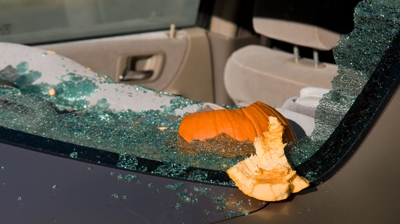It might seem harmless to let a friend or family member borrow your car, but if that person gets into a crash while behind the wheel, things can get complicated very quickly.
Will your insurance company cover repairs if someone else was driving? Will you be financially liable for damages suffered by either driver? Can you recover compensation from your friend or family member if their actions caused the accident?
It’s a mess.
We’ll unpack some of the most common situations below, but it’s important to note that the details can depend on the facts of the case and how your insurance policy is structured. If you have a specific question about a car accident involving your car, the St. Louis car accident attorneys at Niemeyer, Grebel and Kruse are here for you. Call us anytime at (314) 350-1900 to schedule a free consultation.
Is Your Friend Or Family Member a Covered Driver?
Depending on your policy, your friend or family member might not be a covered driver. That means you could face significant financial liability if they are involved in an accident.
Most auto insurance policies include a provision for permissive use, which typically covers occasional drivers who have your consent to use the vehicle. However, the extent of this coverage can vary significantly between policies, and some may not cover non-family members or exclude certain types of accidents.
In cases where the driver is not covered, you, as the vehicle’s owner, may be responsible for all damages resulting from the crash. This includes both property damage and any medical bills if injuries were involved.
Before lending your car to anyone, it’s important to thoroughly understand your insurance policy, including who is covered and under what circumstances.
If Your Friend Is Not At Fault
This is the most straightforward case. If your friend or family member is not at fault in the accident, Missouri’s at-fault insurance system requires the responsible party’s insurance to cover the damages.
Your vehicle’s damage and any medical expenses for the occupants should be claimed against the at-fault driver’s policy. However, complications can arise if the at-fault driver is uninsured or underinsured. In such situations, your own insurance policy’s uninsured or underinsured motorist coverage, if you have it, would come into play to cover the costs.
It’s crucial to file a police report and gather evidence at the accident scene to support the claim that your friend was not at fault. Proper documentation can streamline the process with insurance companies and help ensure that your claims are substantiated. However, navigating the claims process can still be intricate, requiring thorough documentation and possibly legal assistance to resolve disputes or manage negotiations with multiple insurance carriers.
If Your Friend Is At Fault
Here’s where things can get sticky. In Missouri, the primary auto insurance policy on the vehicle is typically first in line to cover damages, regardless of driver.
This means your insurance will likely handle the initial claims for damage and injuries up to your policy limits. However, if the costs exceed these limits, you could be personally liable for the remaining amount.
If injuries or significant property damage are involved, the affected parties might also seek additional compensation. Under Missouri law, you might face claims under the “dangerous instrumentality” doctrine, which holds the vehicle’s owner responsible for damages caused by someone they allowed to operate their vehicle.
In these cases, you might need to seek compensation from your friend to cover any excess amounts not handled by insurance, potentially leading to uncomfortable financial disputes and legal complexities.
Can My Friend’s Insurance Company Cover It?
As we mentioned above, the insurance policy covering the vehicle (yours, in this case) is considered the primary coverage for any accidents. This means your insurance will first be used to handle claims for damages and injuries. Your friend’s auto insurance might serve as secondary coverage, which can be crucial if the damages or medical costs exceed your policy limits. However, this depends on their policy’s terms regarding driving other people’s cars.
Some insurance policies include what’s called “non-owner car insurance,” which provides liability coverage for drivers when they are operating a vehicle not owned by them. This can help cover excess costs that go beyond your policy’s limits. However, not all insurance policies automatically include this type of coverage.
Potential Complications
It’s important to note that pursuing claims through your friend’s secondary insurance can involve complex negotiations and detailed claim evaluations by both insurance providers. The situation may be further complicated if there are disputes over fault or if the coverage details between the two insurance policies don’t align seamlessly.
In these cases, it can be beneficial to work with a skilled car accident attorney who can help you understand the options available to you.
Can You Sue Someone For Crashing Your Car?
Recovering compensation from a friend or family member who was at fault in an accident involves a challenging blend of legal and personal considerations.
In Missouri, when the damages exceed your insurance policy limits or specific exclusions apply, you may need to seek compensation directly from the individual who borrowed your car. This process generally begins by formally requesting that they cover the outstanding costs, which might include additional property damage, medical expenses or increased insurance premiums.
Legally, you could pursue a claim through small claims court if the amount is within the court’s limits, or through higher civil courts for larger sums. This would require proving their negligence or fault in the accident.
However, the personal dynamics in such situations can significantly complicate matters. Requesting or demanding compensation from a friend or family member can strain or even sever relationships. The act of holding them financially accountable can lead to feelings of betrayal or resentment on both sides. It may cause discomfort at family gatherings, create divisions within mutual social circles or lead to ongoing animosity.
To navigate these troubled waters, it’s crucial to approach the situation with clear communication and, ideally, mediated discussions to explore all possible solutions before proceeding to legal actions. Sometimes, setting up a structured payment plan informally or through mediation allows both parties to manage the financial burden without the need for contentious legal proceedings.
This is an emotionally and technically challenging process, and it’s something you shouldn’t do by yourself. A personal injury lawyer can be a significant asset in this process. They understand the nuances of the law and the steps you need to take to recover compensation, and they’ll do the heavy lifting in your case to resolve it quickly and get you the compensation you need.
Get Legal Help For Your Car Accident
If you find yourself having to navigate the complexities of a car accident involving someone else driving your vehicle, remember that you don’t have to face it alone.
The experienced St. Louis car accident attorneys at Niemeyer, Grebel and Kruse are ready to provide you with the guidance and support you need.
Don’t hesitate – take the first step towards resolving your case and securing the compensation you deserve. Call us now at (314) 350-1900 to schedule your free consultation.






